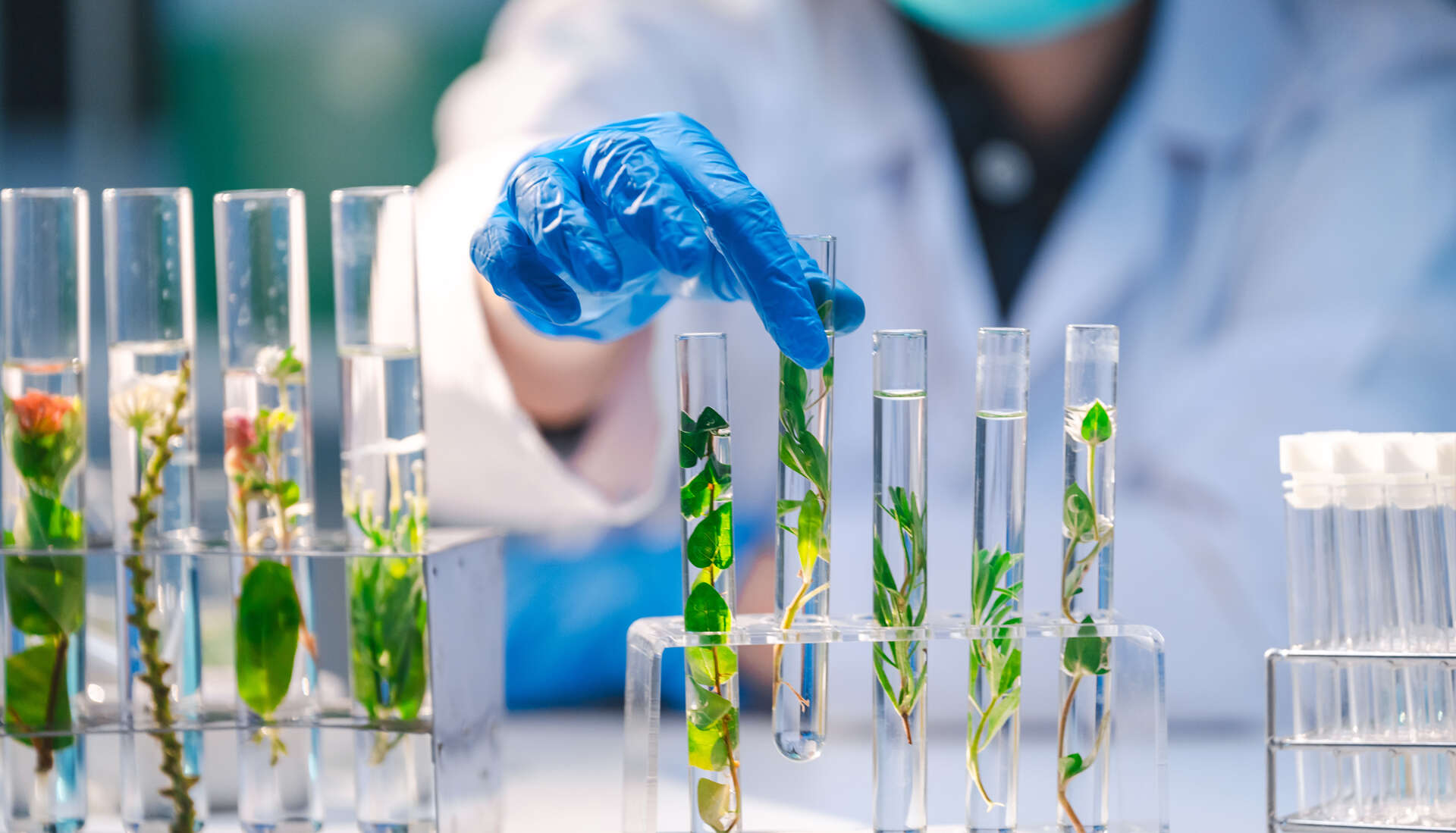These market conditions are creating extraordinary opportunities for Swiss companies that combine breakthrough science with operational excellence. Switzerland’s unique ecosystem — world-class research institutions, demanding domestic customers, and systematic regulatory frameworks — produces agritech solutions that work reliably across diverse global conditions. For sophisticated Swiss investors and ambitious entrepreneurs, this represents both validation of Swiss approaches and a strategic roadmap for capturing disproportionate value in the $79.7 billion agritech transformation projected by 2030[5].
The Precision Play: Innovation Creates Lasting Value
Today’s most compelling agritech success stories are from companies solving fundamental production challenges with technologies that create genuine competitive moats. These precision plays combine breakthrough science with near-term commercialization potential, generating the sustained competitive advantages that sophisticated investors seek.
- INARI (USA) represents the evolution of agricultural biotechnology beyond traditional GMO approaches. Their SEEDesign™ platform combines AI-powered predictive design with multiplex gene editing, working exclusively with native genes to avoid regulatory hurdles. With $720 million in total funding and a $1.65 billion valuation, INARI targets 10-20% yield increases while reducing nitrogen use by 40%[6]. Their approach to corn, soybeans, and wheat — representing 500+ million acres in the Americas — demonstrates how precision gene editing can address the fundamental challenge of feeding more people with fewer resources.
- Dairy protein innovator Perfect Day (USA) is at the forefront of the precision fermentation revolution. Rather than replacing dairy, they produce identical proteins through fermentation, partnering with major CPG companies including Mars, General Mills, and Unilever. Their transition from B2C brands to B2B ingredient supply reflects market maturation, focusing on scaling to profitability with $450+ million raised and regulatory approvals spanning the US and India[7].
- Food waste reduction represents perhaps the most immediately scalable agritech opportunity. Apeel Sciences (USA), valued at $2 billion with $810+ million raised, extends produce shelf life up to 2x using plant-derived coatings from agricultural waste[8]. Their technology prevented 42 million pieces of fruit from waste while operating across 8+ countries with 40+ retail partners. The company’s integrated supply chain approach and AI capabilities through acquisitions demonstrate how to build defensible positions in seemingly commodity markets.
- Winnow (UK) shows how software can capture value in traditional industries through AI-powered computer vision. Operating across 70+ countries and 2,000+ sites, their technology reduces commercial kitchen food waste by 50% on average. IKEA achieved $37 million in savings through Winnow’s platform, demonstrating clear ROI that drives rapid customer adoption[9]. With only $32 million raised, Winnow exemplifies capital-efficient scaling through proven unit economics.
These companies share common characteristics: clear value propositions with measurable ROI, defensible technology moats, and business models that align with customer incentives rather than fighting against them. They represent the maturation of agritech from science projects to scalable businesses.
Building Trust through Operational Excellence
While innovation captures headlines, sophisticated investors prioritize companies demonstrating consistent execution, transparent governance, and systematic scaling capabilities. The most trustworthy agritech investments combine technological leadership with the operational discipline that institutional investors demand.
John Deere exemplifies agricultural technology leadership backed by century-plus operational excellence. The company’s $12.76 billion Q2 2025 revenue beat expectations by 16.2%, while maintaining operating margins above 15-25% across segments. Their Smart Industrial strategy integrates precision agriculture technologies with traditional equipment excellence, creating sustainable customer outcomes rather than one-off technology sales. Deere’s $7.99 billion cash position and dividend aristocrat status provide the financial stability that enables long-term technology investments.
- Corteva Agriscience (USA) demonstrates how agricultural science creates sustained competitive advantages. With $4.42 billion Q1 2025 revenue and 3% organic growth, Corteva successfully transitioned from the DowDuPont spin-off to a focused agricultural science leader. Their innovation pipeline drives differentiated products across seeds and crop protection, while global distribution relationships create barriers to competitive entry. The company’s $1 billion share repurchase program reflects confidence in cash generation and capital allocation discipline.
- Among private companies, Farmers Business Network showcases network effects and platform scaling. Supporting 117,000+ member farms across 187 million acres, FBN evolved from price comparison to full-service platform providing input purchasing, financing, and advisory services. Their $3 billion in farmer financing extended demonstrates capital deployment capability, while member savings of $40,000-100,000+ annually create strong retention incentives. The 50-50 joint venture with ADM for sustainability programs shows how to build strategic partnerships that expand market reach.
- Indigo Ag (USA) represents operational turnaround and market validation in sustainability solutions. Following strategic restructuring, the company achieved 90% revenue growth in the first seven months of 2023, becoming the world’s largest agricultural carbon credit issuer with 133,000 registry-issued credits. Their corporate clients include multi-billion dollar companies, while biological product partnerships with GROWMARK demonstrate commercial traction beyond carbon markets. With backing from Flagship Pioneering and board participation from Moderna’s CEO, Indigo shows how to navigate complex sustainability markets through operational focus.
These trust factor companies share transparent financial reporting, experienced management teams, and systematic approaches to scaling. They demonstrate that agricultural technology can generate the predictable returns and operational metrics that sophisticated investors require for large capital deployments.
La lentille suisse : Avantages pour les constructeurs et les bailleurs de fonds
Switzerland has quietly emerged as a high-impact agritech hub that leverages unique structural advantages unavailable to larger markets.
xFarm Technologies represents Swiss agritech success at European scale. The company’s €36 million Series C in 2024 led by Partech Impact Growth Fund supports 450,000+ farms across 100+ supply chains covering 7 million hectares[11]. Through strategic acquisitions of Greenfield Technologies and SpaceSense, xFarm built European leadership in agri-food digitalization, expanding from Switzerland across Italy, Spain, France, Germany, Poland, and the UK with planned entry into LATAM, India, Turkey, and the US.
Pour les entrepreneurs :
- Switzerland’s regulatory environment provides distinct advantages through Innosuisse innovation support and harmonized EU alignment. The Swiss Accelerator approved €60.4 million for 33 projects in 2023, while 14 agritech startups received Scale-up Coaching in 2024[12]. Switzerland’s patent leadership — filing the most patents per capita globally — creates particularly strong advantages in foodtech, which ranks as the second most patented field after pharmaceuticals.
- Switzerland’s quality-over-quantity approach enables premium positioning and systematic innovation advantages, but requires early international expansion strategies and supply chain diversification. The Swiss market serves as an ideal European test market with 8.5 million multilingual, affluent consumers who create demanding conditions for product validation. Companies like Planted Foods validated their plant-based technologies in Switzerland before expanding to Germany, their main export market[19]. This premium positioning allows Swiss companies to command global premiums while building technologies that succeed in the world’s most demanding markets.
Pour les investisseurs :
- ETH Zurich’s Future Food Initiative demonstrates how academic excellence translates to commercial advantage. The 4.1 million CHF partnership with Bühler, Givaudan, and Nestlé supports 12 postdoctoral fellows, while the New Swiss National AI Institute received 20 million CHF for 2025-2028 focusing on AI applications including agriculture[13]. This combination of world-class research with corporate partnerships creates unique conditions for breakthrough innovation.
- Swiss agritech companies demonstrate higher five-year survival rates than European counterparts with 18 companies in the FoodTech 500, showing the operational discipline and market focus that generate superior returns. The combination of regulatory clarity, corporate partnerships, and innovation excellence creates unique conditions for building globally competitive agritech companies. However, Switzerland faces realistic challenges that sophisticated investors must understand. High operational costs and small domestic market size require rapid internationalization, while 50% import dependency creates supply chain vulnerabilities. The most successful Swiss agritech companies leverage Switzerland as an R&D hub and test market while scaling production and sales in larger European markets.
Commercial Validation: Swiss Excellence Scales Globally
The agritech sector’s financial performance validates Swiss approaches while revealing systematic advantages that enable global expansion. After the dramatic correction from 2021’s $53 billion peak to 2024’s $16 billion, current valuations present attractive entry points with median EV/Revenue multiples of just 1.3x and EV/EBITDA of 10.8x — well below traditional tech company metrics despite superior technology differentiation[14].
Swiss agritech demonstrates remarkable export potential through proven commercial success across diverse markets. xFarm Technologies’ expansion from Switzerland to seven European countries with planned global rollout validates the universal applicability of Swiss precision agriculture methodologies. Their 450,000+ farms and 7 million hectares under management prove that Swiss-developed solutions scale effectively across different agricultural systems, climates, and regulatory environments.
Historical returns demonstrate agritech’s competitive advantage when execution excellence meets innovation. US venture capital achieved 13.4% IRR in agritech versus 8% in cleantech from 2002-2017, improving to 16.3% versus 13.2% respectively from 2012-2017[15]. Swiss companies benefit from this sector performance while adding systematic operational advantages that international investors increasingly value.
The exit environment reveals systematic opportunities for Swiss companies with global reach. Strategic acquisitions consistently create extraordinary value — John Deere’s $305 million Blue River Technology acquisition correlated with a $12.3 billion market cap increase, representing a 40x multiple on the acquisition price[16]. Similar patterns across DuPont, BASF, and FMC acquisitions suggest that Swiss companies with proven international operations command premium valuations when acquired by global agricultural giants.
Market projections support Swiss companies’ global expansion strategies. Multiple research sources project robust growth from $24.4 billion in 2024 to $49-79.7 billion by 2030, driven by population growth requiring 70% increased food production by 2050, climate pressures accelerating technology adoption, and government support including the EU’s $10 billion Horizon Europe and US Farm Bill’s $500 million for precision agriculture[17].
For sophisticated Swiss investors, the current agritech environment offers exceptional opportunities to back companies with proven domestic success and clear international expansion potential. Swiss precision agriculture technologies address universal challenges — resource efficiency, yield optimization, sustainability compliance — that create natural export markets across developed and emerging economies.
La connexion CapiWell
Swiss agritech’s proven ability to export precision methodologies globally creates extraordinary opportunities for sophisticated participants who recognize that operational excellence and systematic innovation increasingly define competitive advantage in agricultural transformation. CapiWell brings together discerning investors and execution-focused entrepreneurs who understand that Swiss precision agriculture approaches scale internationally because they solve universal challenges better than alternative solutions.
Références :
[1] https://agfundernews.com/global-agrifoodtech-breaks-funding-freefall-with-16bn-in-2024
[2] https://agfunder.com/research/agfunder-global-agrifoodtech-investment-report-2025/
[3] https://cdn.asp.events/CLIENT_Dubai_Wo_4B15F265_5056_B739_54F3125D47F0BC95/sites/GulfoodGreen24/media/2024/agfunder-global-agrifoodtech-investment-report-2024.pdf
[4] https://www.gao.gov/products/gao-24-105962
[5] https://agfundernews.com/investment-in-agriculture-gene-editing-grew-206-yoy-in-h1-2024-hinting-at-sector-recovery-and-new-momentum
[6] https://agfundernews.com/seed-gene-editing-startup-inari-valued-at-165m-following-103m-fundraise
[7] https://inari.com/
[8] https://vegconomist.com/investments-finance/perfect-day-90m-whey-proteins-co-founders-step-dow/
[9] https://en.wikipedia.org/wiki/Perfect_Day_(company)
[10] https://techcrunch.com/2021/08/18/apeel-bites-into-another-250m-funding-round-at-a-2b-valuation-to-accelerate-fresh-food-supply-chains/
[11] https://blog.winnowsolutions.com/winnow-raises-10-million-in-series-c-funding-to-accelerate-growth-and-further-develop-ai-powered-food-waste-prevention
[12] https://www.prnewswire.com/news-releases/deere-reports-second-quarter-net-income-of-1-804-billion-302456517.html
[13] https://www.deere.com/assets/pdfs/common/news/deere-2q25-earnings-release.pdf
[14] https://forwardfooding.com/blog/foodtech500/the-swiss-foodtech-ecosystem/
[15] https://techfundingnews.com/swiss-agtech-startup-xfarm-technologies-lands-e36m-to-make-agriculture-more-sustainable-with-ai/
[16] https://www.eu-startups.com/2024/10/swiss-agtech-xfarm-technologies-raises-e36-million-series-c-to-keep-digitising-the-agri-food-sector/
[17] https://ibef.org/blogs/agritech-landscape-in-india




